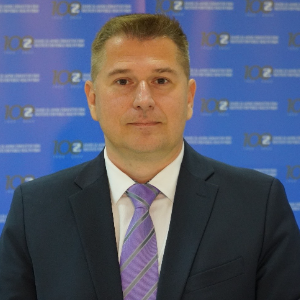Title : An effective strategy for eliminating chronic hepatitis C in individuals with an opioid addiction
Abstract:
Background: The healthcare system in Bosnia and Herzegovina continues to face a significant burden due to the presence of chronic hepatitis C. Individuals who engage in the use of injectable drugs represent a substantial reservoir of the hepatitis C virus, hence presenting an enduring public health concern.
Methods: A novel paradigm encompassing motivation, preparation, treatment, and monitoring of chronic hepatitis C was established with the aim of enhancing patient accessibility and reducing barriers to treatment. The study conducted by the Center for the Prevention and Outpatient Treatment of Addiction in Mostar involved an examination of medical records in order to investigate the sociodemographic and beginning treatment factors for chronic hepatitis C in individuals receiving opioid substitution therapy in the IDU, as well as their family members. These individuals underwent standardized procedures in accordance with the Mostar model.
Results: The research findings indicate a significant success rate (94.7%) in effectively eliminating HCV infection in individuals with addiction through the use of DAA. A cohort of 25 patients underwent diagnostic treatment, with just one patient voluntarily terminating the treatment and one patient succumbing to the condition. Patients who received treatment had an average starting viremia of 795,104 IU/mL. The results of the genotyping analysis indicated a nearly equal distribution of genotypes 1 (52%) and 3 (48%).
Conclusion: This study enhances the comprehension of optimal approaches in the treatment of individuals with opioid addiction and contributes to the investigation of strategies for efficiently managing infectious diseases in susceptible demographics. The model exemplifies a relevant instance of a successful public health initiative, and its implementation can serve as a source of inspiration and direction for other communities in Bosnia and Herzegovina grappling with the task of eliminating HCV among this vulnerable population.



